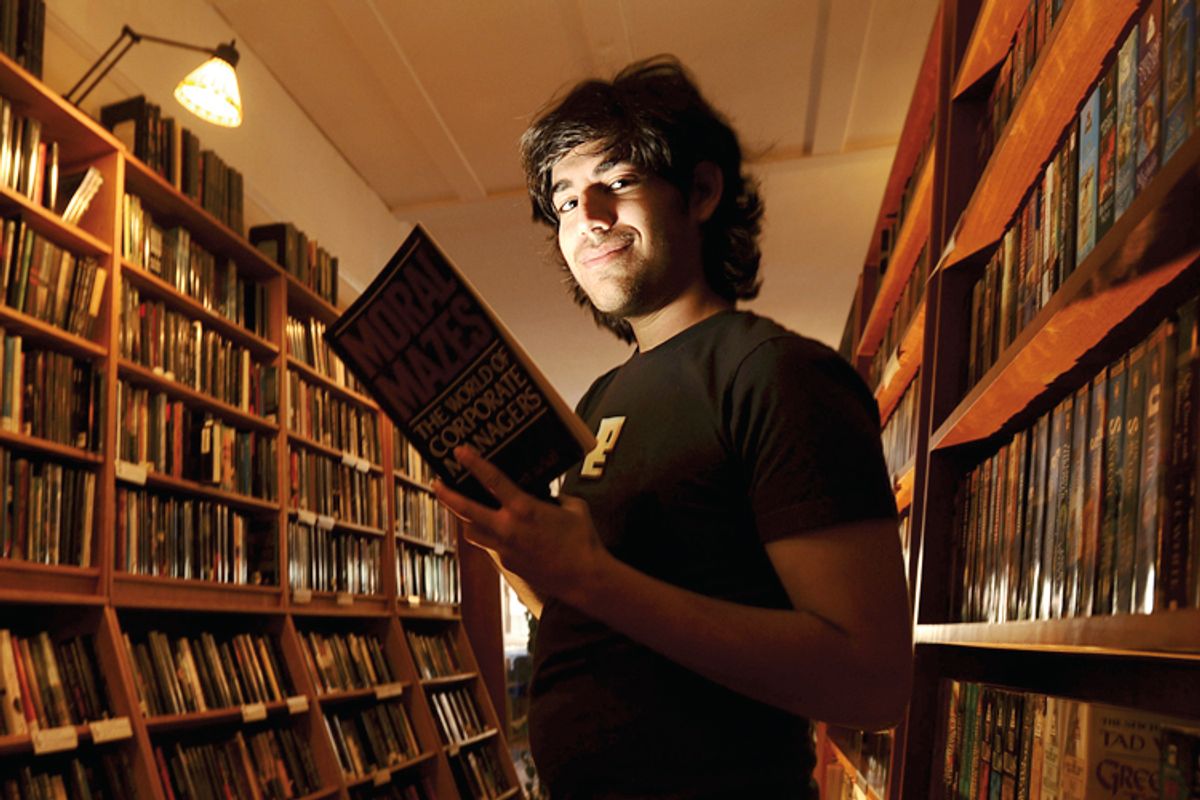Do not mourn Aaron Swartz. Instead, be radicalized by his example. Such was the message at a Friday evening townhall memorial for Swartz, the open access activist who killed himself January 11.
The panel included Taren Stinebricker-Kauffman, Swartz's partner for the last year and a half of his life, a period in which Swartz faced prosecution on charges that he had illegally downloaded as many as four million documents from the online academic archive JSTOR, Tim Berners-Lee, the creator of the World Wide Web, Timothy Wu, a Columbia law professor, Jennifer Lynch from the Electronic Frontier Foundation, and others who had worked with Swartz and shared his values.
The panelists attacked Swartz's legacy from different angles, but their message was clear. Yes, the legal system is broken. Yes, the political system is broken. Yes, progressive change is incredibly hard. But change is still possible and small steps count.
Reforming the Computer Fraud and Abuse Act, the law under which Swartz was charged with multiple felonies, won't be easy, and even if the effort to replace it with updated legislation -- the so-called Aaron's Law -- is successful, it won't be enough to make more than a small dent in a dysfunctional system. But small victories can add up, stressed Stinebricker-Kauffman. Timothy Wu pointed out that previous socially progressive victories -- civil rights, gay marriage -- had seemed impossible for long periods, "until suddenly the old system collapsed."
The panelists projected grim determination. They remembered Aaron, but they stressed action. At the end of a day on which SXSW attendees had been oohing and ahhing at 3D printing tricks or chasing after the next hot startup, and were now preparing for a night of rambunctious eating and drinking, this outbreak of dead seriousness provoked some consternation among the audience.
One member of the audience referenced Aaron Swartz's call for everyone to devote their energies to working "on the most important thing in the world." If that were so, said the questioner, wasn't it kind of disgusting that all of us had gathered in Austin to have a rip-roaring good time? Were we not at all acting out the corrupt decadence of our society?
A murmur of guilt simmered through the crowd.
Taren Stinebreaker-Kauffman, who had been most fierce in her challenges to society, demurred. One of Aaron's faults, she noted, had been his inability to take care of himself, to find what made him happy, to basically turn downhis tempo from full acceleration, all the time. We can't always be working on the most important thing in the world, she said, or we'll burn out.
Berners-Lee picked up to the baton. You don't need to spend all your time in direct action, he said. You can make a big difference just devoting some of your time to justice, and some to persuasion. And then, like a good programmer, he came up with a bare-bones social action algorithm.
"Spend 10 percent of your time doing the most important thing in the world, and 10 percent of your time persuading other people, and the rest of your time going to SXSW!"
Welcome laughter rained down after the hard talk. Guilt temporarily assuaged, the crowd dispersed into the streets of Austin.
And if you want to do your little part for Aaron's Law, EFF will point you in the right direction.



Shares